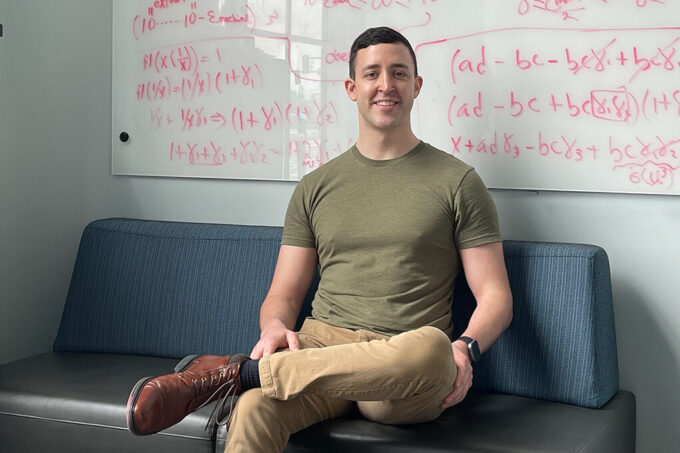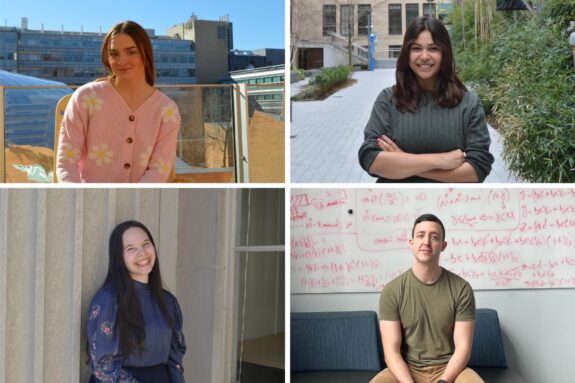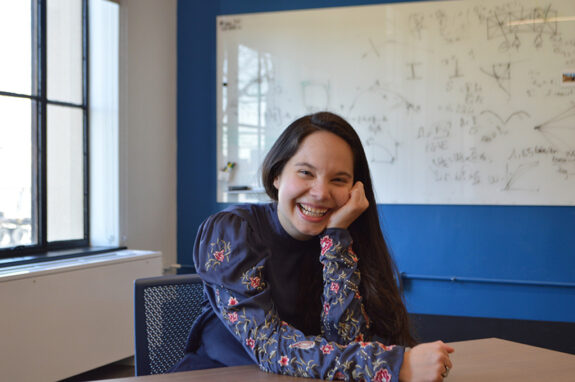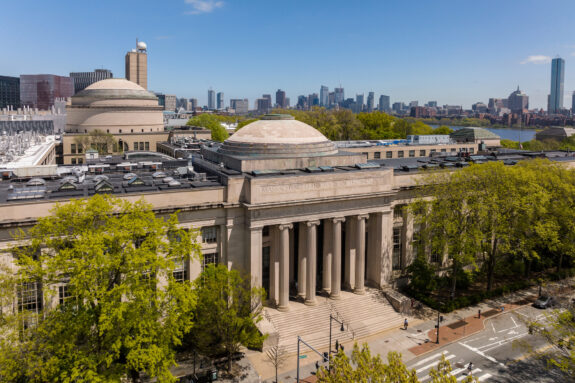Course 1-12 spotlight: Justin Cole pivots from military service to climate crisis

Justin Cole had a front row seat to our changing climate during his nine years of military service. Now a course 1-12 major, he's hoping to engineer new technologies that can make a difference.
Justin Cole served in the Air Force for nine years operating GPS satellites and defensive space systems. Over the course of his service, he had a front row seat to our changing climate. From helping with the wildfire clean-up in Black Forest, Colorado, the states most destructive fire at the time that destroyed the landscape in 2013, to Japan getting hit with two category 5 typhoons in 2018. Experiencing these two big natural disasters was a watershed moment for Cole; he realized climate security as a prerequisite to international security. In 2019, he declined an appointment to the U.S. Space Force to pivot his career toward climate work. “Having an equitable world, where we have reinforced food systems and energy systems” was an important aspiration for Cole and he felt called to pursue this path. He wanted to start using his systems knowledge gained from the Air Force to pivot towards new technology that could be engineered to make a difference. When he got out of the Air Force in 2021, he enrolled at the University of Colorado to major in Data Analytics and Systems Engineering.
Last summer, Cole participated in the Warrior-Scholar Project that brought him to the Massachusetts Institute of Technology for a one-week program that prepares veterans transition into higher education. During the program, he met with faculty that connected him to Course 1-12 Climate System Science and Engineering. “I fell in love with MIT and every person that I met was down to earth and friendly, so I thought I’d apply. I didn’t expect to get in, but glad I did.”
Cole, who is born and raised in Massachusetts, started MIT this spring semester as a course 1-12 major. Only three weeks into the semester, he said his classes have been more rigorous than any he’s experienced in academia. One of his favorite classes this semester is taught by Professor Desiree Plata, course 1.107 Environmental Chemistry Lab. “The first lecture focused on climate change from day one by characterizing different types of emissions and asking questions about how humans and systems of government interact to address them.”
Before Cole came to MIT, he led a climate-action nonprofit in Colorado Springs and at MIT he recently got accepted into the MIT Energy and Climate Club Launchpad program. He will work with a team of MIT students, alumni, and community members on consulting projects in the climate and energy startup space.
“All of the dots are connecting so far in my classes and all the hopes that I have for studying the climate crisis and the solutions to it at MIT are coming true.”
Learn more about the new Climate System Science and Engineering bachelor’s degree offered by the Departments of Civil and Environmental Engineering (CEE) and Earth, Atmospheric and Planetary Sciences (EAPS) on the degree program’s website.


